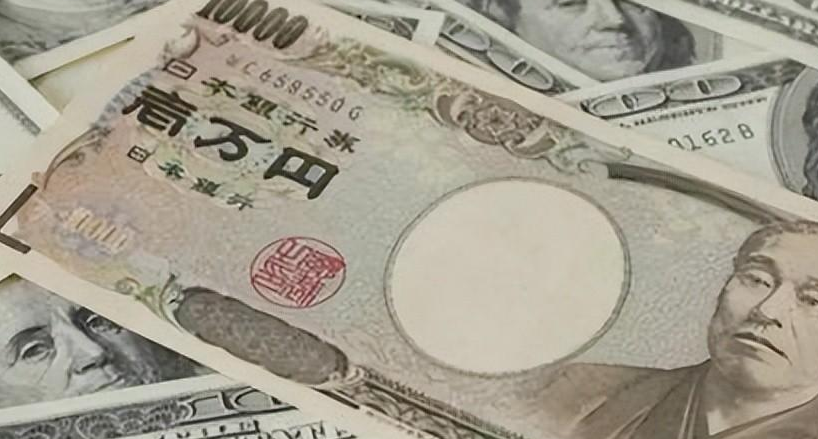Japan, South Korea Take Bold Economic Steps
Advertisements
In recent weeks, currency markets around the world have been rocked by significant fluctuations, prompting urgent responses from national authorities in both Japan and South Korea. Concerns over economic stability and currency value have intensified, leading to central bank interventions aimed at stabilizing their respective currencies amid rising volatility and declining valuations.
On December 20, Japan's Finance Minister, Shunichi Suzuki, addressed the public regarding the alarming one-way and severe fluctuations of the yen. He expressed concerns that such volatility could threaten the nation's overall economic stability. The Japanese yen had recently plummeted, hitting a five-month low against the US dollar, with rates climbing as high as 157.93 yen to the dollar before slightly rebounding. In response, Suzuki announced that the government would take necessary actions to mitigate excessive fluctuations in the currency, emphasizing that a stable exchange rate is essential for reflecting the underlying economic fundamentals.
Similarly, South Korea has been grappling with a downturn in the value of its currency, the won. As of the same day, the dollar exchange rate with the won rose to a peak of 1452.1, marking a significant decline of more than 12% since the beginning of the year. This drop has positioned the won as one of the worst-performing Asian currencies, and if trends continue, it may record its poorest annual performance since 2008. In light of this ongoing decline, the National Pension Service of Korea is considering a large-scale divestment of dollars to counteract the adverse currency trends.
While Japan and South Korea are facing their challenges, Brazil's currency, the real, has been even more severely affected. The real saw an increase of over 20% against the dollar in the year leading up to December. In a bid to stabilize the currency, the Brazilian Central Bank has engaged in consecutive operations, selling off approximately $8 billion from its reserves on December 19 alone, with the aim of sustaining the real’s value. The dollar closed that day at an all-time high of 6.2896 real, which again underscores the precarious situation of the Brazilian currency.

The global currency landscape is significantly influenced by the actions and policies of the Federal Reserve in the United States. Recently, the Fed's hawkish stance on interest rates has led to a dramatic reassessment of future monetary policy directions. Following the Fed’s recent discussions, some options traders started lowering their expectations for rate cuts in 2024 and even began contemplating the possibility of a rate hike occurring next year, reflecting a shift in sentiment. As a consequence, the strengthening of the dollar against various currencies—including the yen and won—has garnered considerable attention and concern.
In Japan, the central bank’s decision to maintain the benchmark interest rate at 0.25% has been pivotal, further exacerbating the yen’s decline. The Bank of Japan has reiterated that inflation trends are aligning with their longer-term goals; however, the continuation of the low rate environment poses challenges for currency stability. The interplay between the Federal Reserve's actions and Japan’s monetary policy sets the stage for potentially unparalleled volatility in the foreign exchange markets.
For South Korea, the currency's vulnerability is exacerbated by political uncertainty surrounding its leadership and the broader geo-economic landscape. With President Yoon Suk-yeol's administration facing fluctuations in domestic political stability, economic performance remains a point of contention. The potential for further depreciation of the won heightens domestically driven economic pressures and erodes confidence in the currency’s value.
Notably, financial experts have indicated that if the trend of a depreciating won continues, the National Pension Service may activate its strategic currency hedge. This would involve substantial adjustments to its foreign currency transactions to hedge against unfavorable exchange rates—a situation that highlights the complex interdependence between currency values, domestic policy responses, and global market conditions.
As Brazil continues to grapple with currency depreciation, the newly appointed president of the central bank, Gabriel Galípolo, views the challenges facing the real as natural responses to market conditions rather than purely speculative attacks. The Brazilian economy's trajectories amid these currency pressures will be critical in gauging overall fiscal health and economic stability in the region.
Across these nations, the broader implications of the current currency turmoil are manifold. The intertwined nature of global finance means that stability in one locale can influence another. As policymakers navigate these turbulent waters, the strategies they employ will be scrutinized closely by markets and economists alike, revealing the inherent vulnerabilities in relying on currency values as indicators of national economic strength.
Moreover, as discussions regarding interest rates and economic policy evolve, the actions taken by the Federal Reserve will undoubtedly continue to reverberate through foreign exchange markets across the globe. The anticipation surrounding potential changes to U.S. monetary policy creates an element of uncertainty that leaves many nations on edge as they seek to protect their currencies from continued volatility.
In conclusion, the evolving dynamics of currency exchange rates are underscored by response strategies from Japan, South Korea, and Brazil as they react to both domestic and international economic influences. The stakes are high; policy responses to currency fluctuations are not merely a matter of financial statistics but encapsulate national economic strategies and geopolitical relations. As these nations brace for possible economic shifts ahead, continuous monitoring and adaptive strategies will be vital in safeguarding currency stability and promoting economic resilience.
Leave a Reply